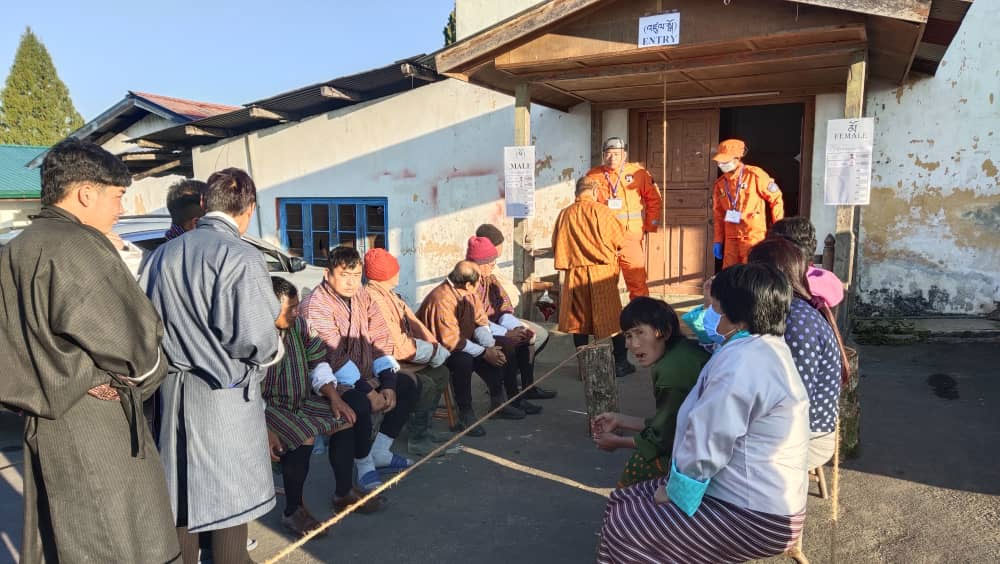… Zhemgang backs candidates of the winning party
Lhakpa Quendren
After remaining with the opposition party for years, the voters of Zhemgang have seen their longstanding desire for representation in the government fulfilled during the fourth National Assembly elections.
The voters of Zhemgang have realised that being in the opposition party has stymied the development activities in their dzongkhag for years. This concern has prompted them to make informed decisions when choosing their representatives.
According to some voters who supported the candidates of the People’s Democratic Party (PDP), they have already observed the potential on various grounds within the party that could lead to forming the government.
A voter in Goshing said that he supported PDP’s Lungten Dorji because of the possibility of forming the government. “Our concern is not whether our candidates win or lose, but which party will come to power.”
“I had been supporting the Druk Phuensum Tshogpa (DPT) for the previous three elections, but we realised that DPT was unlikely to form the government even if the party advanced through the primaries,” said another voter from Goshing, adding that he supported PDP in both rounds of the recent elections.
As one of the most remote and least developed dzongkhags, the people have always yearned for urgent policy attention to bring development activities to their dzongkhag, which they say has remained on paper.
“Zhemgang has one of the highest poverty rates in the country and has been falling behind for many years. I believe being in the opposition party was a disadvantage for development,” said a voter in Panbang.
Voters in Upper Kheng said that more needs to be done for their constituency. They believe that being a member of the ruling party has more advantages in bringing about development activities.
“Now is the time for our elected representatives to pay attention to Zhemgang. We expect more from them, as economic development has been a widely discussed topic. As much as they are concerned, we are equally concerned,” said a resident from Nangkhor gewog.
Going by the polling station-wise votes, PDP’s Lungten Dorji won in 14 out of the 20 polling stations. Panbang School polling station, which has the highest registered voters in the Panbang constituency, contributed to his success with 414 votes out of the total 505 voter turnouts.
In addition, he secured the highest number of postal ballots, with 1,573, leading by 486 votes over his opponent. His lowest vote count is from the Chag-Ngar-Zam ORC polling station, which had 57 voter turnouts.
Dorji Cheten from the Bhutan Tendrel Party (BTP) won in six polling stations under the Panbang constituency. However, since these polling stations had fewer eligible voters, it did not contribute to his election.
He secured the highest votes at the polling stations of Goshing School and Tashibi School, with 113 votes each, winning both over PDP’s Lungten Dorji. He received the lowest vote count of six at Kamati ORC out of the total 90 voter turnouts.
In Bardo-Trong, PDP’s Lekey Dorji secured 15 out of the 20 polling stations, with the highest vote cast of 248 from the community hall polling station, followed by 223 votes at the Zhemgang Central School polling station.
In addition, the postal ballots of 2,241 played a significant role in Lekey Dorji’s success, leading by 799 votes over his opponent. He was elected with 4,656 votes, including the postal ballots.
BTP’s Pema Dakpa, with 2,954 total votes, won five polling stations, securing the highest votes of 388 out of the total 440 voter turnouts at the Khomshar School polling station. His second-highest vote count was at the Tingtibi School polling station with 138 votes, winning over his opponent.


